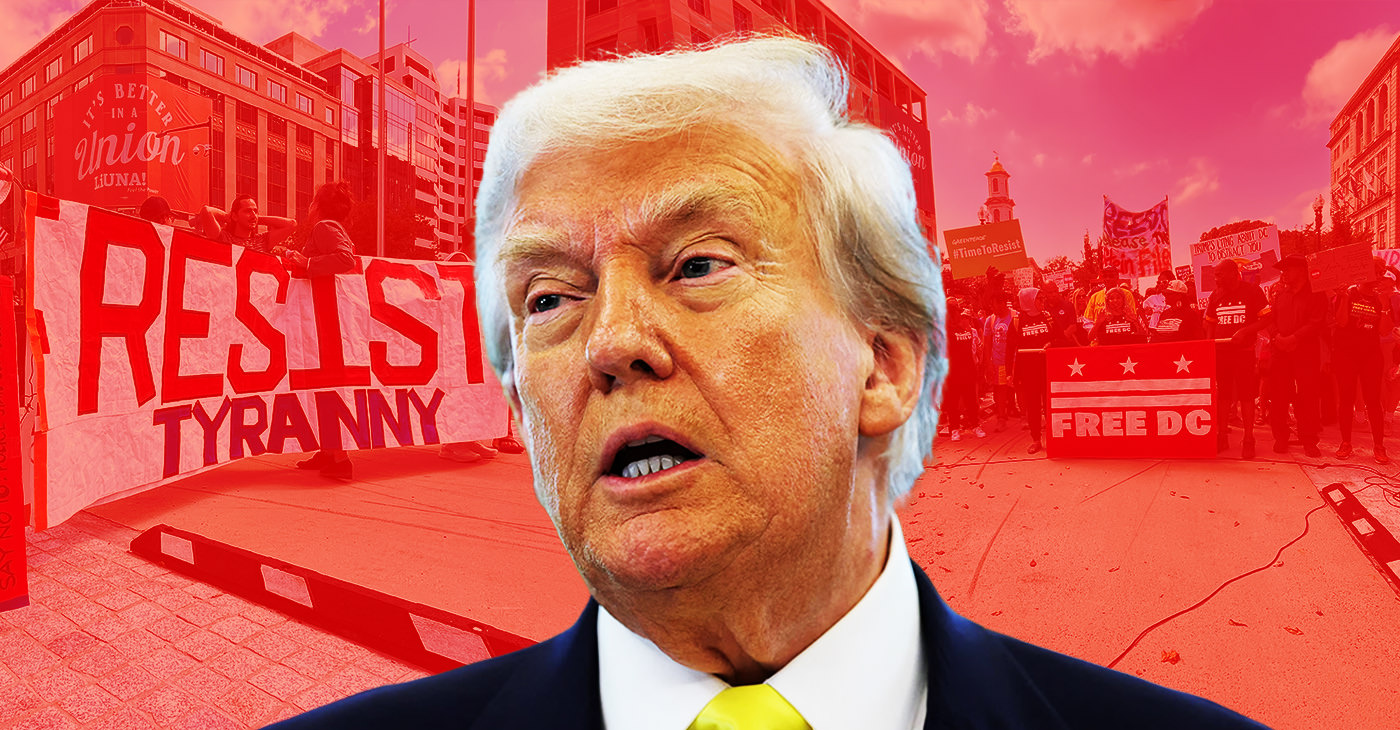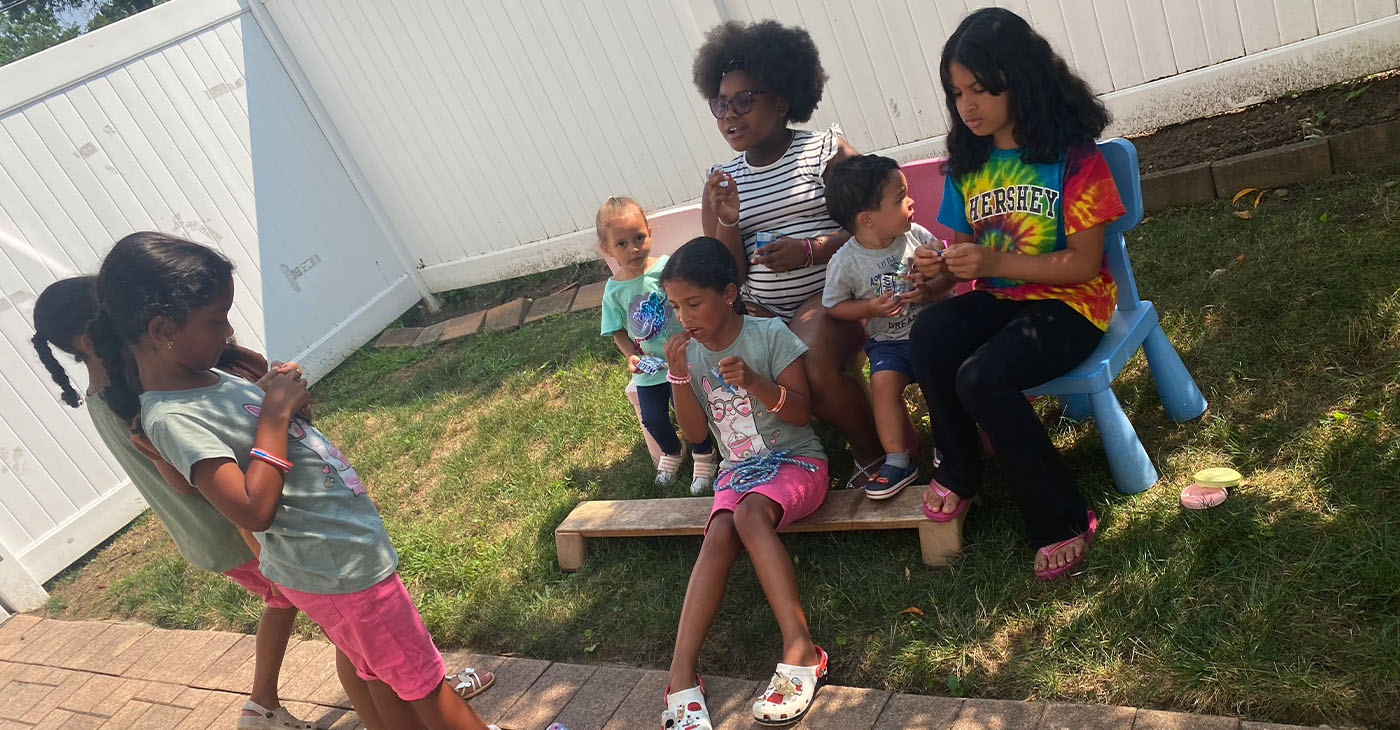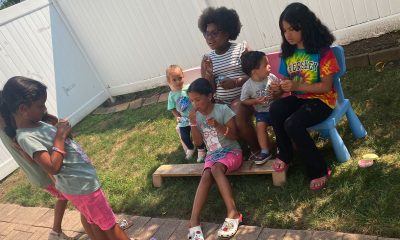#NNPA BlackPress
COMMENTARY: Why ‘The Woman King’ Is Revolutionary
CHICAGO DEFENDER — Women characters becoming sword slashing or shotgun-toting badasses (i.e., Kill Bill and Foxy Brown) or rebels against their prescribed roles (i.e. Thelma & Louise) have often still registered as objects of the traditional gaze, rendered more exotic or erotic because they take on expected tropes of masculine toughness or step out of their domestic roles and temporarily seize the day. Women wielding weapons as well as or better than men can too easily be deemed as radical representations of women with little attention to context or the problematic association of violent toughness with heroic maleness on screen.
The post COMMENTARY: Why ‘The Woman King’ Is Revolutionary first appeared on BlackPressUSA.

Back in a 1974 review of the Bond-like Cleopatra Jones movie starring Tamara Dobson, Feminist and former Ms. Magazine editor Margaret Sloan spoke volumes about Black female spectatorial desire. Damn, that felt good she wrote. After viewing The Woman King, we know exactly what she meant.
Cleopatra, a beautiful, kick-ass Black woman empowered by the U.S. government but grounded in her commitment to the Black community, was a Black Power era fantasy character. Over 40 years later, Marvel’s Afrofuturist Black Panther teased us with the cinematic possibilities of Wakanda’s supporting characters, a squad of royal Black women soldiers. The Woman King brings such women to the center and importantly marks both the evolution and realization of this on-screen representation of Black women and the cinematic evolution of its director, Gina Prince-Bythewood.
Directed by Gina Prince-Bythewood with screenwriter Dana Stevens, The Woman King is inspired by the real-life Dahomey female warriors, the Agojie, who were formed in the 1700s and became legendary fighters. Viola Davis, who plays the fictional character General Nanisca – arguably a composite nod to various African warriors like Nzinga and Yaa Asantewaa, and an emerging young Agojie, Nawi (Thuso Mbedu), lead an extraordinary cast including, Lashana Lynch as the enthralling Izogie and John Boyega as young King Ghezo.
The Woman King is not a biography or intended to be a neat history lesson on African women warriors and as such takes full creative license to reimagine the Agojie, threading together the historical realities of slavery, racial, gender, and class violence to fashion a world in which women have not only a female-centered, controlled safe space to live but literal physical and socio-political choice, voice, and visibility within the patriarchal structure of their immediate community and beyond.
Women characters becoming sword slashing or shotgun-toting badasses (i.e., Kill Bill and Foxy Brown) or rebels against their prescribed roles (i.e. Thelma & Louise) have often still registered as objects of the traditional gaze, rendered more exotic or erotic because they take on expected tropes of masculine toughness or step out of their domestic roles and temporarily seize the day. Women wielding weapons as well as or better than men can too easily be deemed as radical representations of women with little attention to context or the problematic association of violent toughness with heroic maleness on screen.
The Woman King has a copious amount of violence and blood; brutal warring between different African nations and between the Africans and Europeans involved in turbulent at turns reciprocal slave trafficking is one of the unfortunate realistic historical threads exploited in the film’s unapologetic anti-Atlantic slave trade and African involvement sentiment.
However, the spectacle of physical violence is in service to the dominant and most important critical representation in the film – women whose reaffirming collective sisterhood is a formidable force against patriarchal oppression and to an extent racial and class oppression. The women the Agojie rescue or take captive after the battle are given the power to choose a rare life and identity for themselves whereas men do not generally dictate their daily movements or can willfully them to be subservient wives, daughters, or servants that they can rape and beat at will.
To become Agojie is to fight for their male king and Dahomey, but as they remind each other, they fight for themselves and each other in service to their own double-edged quest for freedom and power as women and Dahomey people. This is not pretty work, women soldiering in battle with and against men. This is why the rare movie depiction of Black women in the community within the Agojie compound registers so magnificently.
Here neither men’s gaze nor presence is allowed. Here women dance, train, and braid each other’s hair, tend tenderly to one another’s wounds, strategize, debate respectfully, learn to transcend ethnic differences, and grow their sense of individual and collective empowerment.
The French slavers call them “Amazons” but this dismissive historical tag holds no weight in The Woman King. The women in the film hold the controlling narrative point of view and declare themselves, “Agojie” and “sisters” and there is the possibility of a ‘Woman King’.
Gina Price-Bythewood’s Black romantic classic, Love and Basketball (2000) marked the debut of its promising director. Two Black leads (portrayed by Sanaa Lathan and Omar Epps) come to bond over their passion for playing basketball and later fall in love. We loved Prince-Bythewood’s exploration of a Black woman’s uneasy navigation of her professional ambition and the social gender expectations as her traditional mother’s daughter and boyfriend’s girl. And yet, it settled uneasily. Her passion and ambition for basketball rises, falls and rises again with the twists and turns of her romantic relationship until she’s happily settled in domestic life and in the WNBA.
Later, in Price-Bythewood’s under-rated Beyond the Lights (2014), the exploration of women’s difficulties choosing and defining their paths and self-identity continues with a young pop singer (Gugu Mbatha-raw) struggling to navigate the expectations of her manager mother and pop stardom; a romance with a regular good guy (Nate Parker) helps her to ultimately step into the music and self-representation she truly desires.
In real life, the Agojie were devastated by Dahomey’s ongoing conflicts – wars with other African nations and participation in and against the slave trade with the Europeans – becoming an exhibition for the Western gaze and historical record.
But The Woman King, thank you very much, is a movie. Gina Prince-Bythewood directs her fullest, most satisfying representation of Black women’s quest for autonomy and actualization. The Woman King boldly unsettles the traditional spectacle of patriarchy and not because the women fight with such dazzling physical might and skill with their bodies or rope and machete in hand, but because the most radical thing is that the love, intimacy, and sisterhood between women, the collective power of this, sits boldly at the center of The Woman King. In American popular film, this is revolutionary.
Words by: Dr. Stephane Dunn and Dr. Beverly Guy-Sheftal
@DrGuySheftall
The post Why ‘The Woman King’ Is Revolutionary appeared first on Chicago Defender.
The post COMMENTARY: Why ‘The Woman King’ Is Revolutionary first appeared on BlackPressUSA.
#NNPA BlackPress
What Trump’s Control of D.C. Police Means for the City, Its Mayor, and Black Residents
BLACKPRESSUSA NEWSWIRE — Donald Trump today seized direct control of Washington, D.C.’s Metropolitan Police Department, removing authority from Mayor Muriel Bowser and placing the force under the command of Attorney General Tom Cotton. The move comes under a “crime emergency” declaration that allows the president to invoke Section 740 of the D.C. Home Rule Act — a rarely used law that exists only because the District lacks full statehood.

By Stacy M. Brown
Black Press USA Senior National Correspondent
Donald Trump today seized direct control of Washington, D.C.’s Metropolitan Police Department, removing authority from Mayor Muriel Bowser and placing the force under the command of Attorney General Tom Cotton. The move comes under a “crime emergency” declaration that allows the president to invoke Section 740 of the D.C. Home Rule Act — a rarely used law that exists only because the District lacks full statehood.
For Mayor Bowser, this means she no longer has operational control of her own police department. All decisions on how and where officers are deployed now run through the Justice Department. That includes the ability to redirect D.C. police from neighborhood patrols to guard federal buildings, secure national monuments, and police protests — even if it leaves fewer officers in local communities. For African Americans in the District — who make up nearly half the city’s population — the change places local policing under the direct control of a president who has repeatedly called for racial profiling, attacked other predominately Black-led cities such as Baltimore and Chicago, and used “law and order” policies that disproportionately target Black communities. Residents could see federal priorities override local crime prevention strategies, with increased policing around demonstrations and broader latitude for aggressive enforcement tactics. Trump justified the takeover by citing D.C.’s 2024 homicide and vehicle theft rates, even though other cities he has singled out — all with large Black populations and Black leadership — have seen major crime reductions this year. The order has no end date, meaning the District’s police could remain under federal command indefinitely. This is only possible because D.C. is not a state — a political reality that leaves its leadership vulnerable to federal override and its residents without full control over their own local government.
#NNPA BlackPress
Trump’s D.C. Crackdown Follows Pattern of Vilifying Black Cities
BLACKPRESSUSA NEWSWIRE – President Trump’s takeover of D.C.’s police force and National Guard deployment ignores record crime drops and targets majority-Black cities with fear-driven rhetoric. From Baltimore to Chicago, data shows major declines in violent crime—yet Trump pushes a false chaos narrative to justify federal control and undermine Black leadership.

BLACKPRESSUSA NEWSWIRE – President Donald Trump’s decision to seize control of Washington, D.C.’s police force and deploy National Guard troops is not about fighting crime—it’s about weaponizing fear, distorting facts, and sending a racist dog whistle aimed squarely at a majority-Black city and its Black woman mayor.
On Monday, Trump declared “liberation day in D.C.,” vowing to “wipe out crime, savagery, filth, and scum” in the capital. The language was as inflammatory as it was disconnected from reality. His data shows that in 2024, violent crime in D.C. fell by 35% compared to the previous year, reaching a 30-year low. Homicides dropped 32%, robberies 39%, armed carjackings 53%, and assaults with a dangerous weapon 27%. Even now, D.C. police report violent crime, which is down another 26% from last year.
Yet Trump’s narrative paints the city as spiraling into chaos—a deliberate fiction that gives him cover to impose federal authority where it’s neither requested nor warranted. And D.C. isn’t the only target. He name-checked Baltimore, New York, and Chicago—all cities with large Black populations, Black political leadership or both. This is a calculated pattern: vilify Black-led cities, strip away their autonomy, and use them as backdrops for a law-and-order spectacle.
In June, the Baltimore Police Department (BPD) announced that it continued to see a 22% decrease in homicides and a 19% decrease in non-fatal shootings. Group A National Incident-Based Reporting System (NIBRS) offenses are down 11%, with many categories down by double digits. Additionally, the clearance rates for homicides and citywide investigations, including non-fatal shootings, robberies, burglaries, and more, are significantly above the national average.
Also, from Jan. 2025 through May 2025, New York City experienced and set the record for the lowest number of shootings and murders in May. Further contradicting Trump, shootings and homicides are each down more than 30% through the first half of 2025 compared to the same time last year, after the city recorded its fewest homicides for any June in more than a decade.
According to data from the city and the Chicago Police Department, total violent crime is down at least 22% thus far in 2025, while there have been 90 fewer homicides and more than 400 fewer shootings compared to last year.
Still, Trump’s news conference was a spectacle laced with hypocrisy. He railed against “no bail” policies, yet after being convicted of 34 felony counts, he posted bail and ran for—and won—the presidency again. He was also impeached twice during his first term.
Recently, his administration has dispatched at least 450 federal officers into D.C., with plans for a military presence, even though Mayor Muriel Bowser has not requested it. As she put it on MSNBC: “If the priority is to show force in an American city, we know he can do that here, but it won’t be because there’s a spike in crime.”
Trump’s “cleanup” pledge goes beyond policing. He’s vowed to remove homeless residents forcibly from D.C., promising to relocate them “far from the Capital.” His language criminalizes poverty and mirrors the racialized rhetoric he’s used in other contexts—most recently in California, where he’s asked the U.S. Supreme Court to allow immigration arrests based on race, language and type of work.
For D.C., nearly half of whose residents are Black, this takeover isn’t about safety. It’s about control. It’s about a president using manipulated crime narratives and militarized force to undermine local Black leadership—and setting a precedent that any majority-Black city could be next.
“If the priority is to show force in an American city, we know he can do that here, but it won’t be because there’s a spike in crime,” Bowser told reporters.
#NNPA BlackPress
Early Childhood Education Advocate Offers Advice to Parents
BLACKPRESSUSA NEWSWIRE — BlackPressUSA interviewed Janna Rodriguez, an advocate, educator, and champion for early childhood education. She’s the founder and owner of Innovative Daycare Corp in Freeport, NY, where she has created a nurturing, bilingual, and inclusive environment serving children of all abilities.


By Janna Rodriguez
BlackPressUSA interviewed Janna Rodriguez, an advocate, educator, and champion for early childhood education. She’s the founder and owner of Innovative Daycare Corp in Freeport, NY, where she has created a nurturing, bilingual, and inclusive environment serving children of all abilities.
Janna leads advocacy efforts through organizations including the CDA Council, NAEYC, Small Business Majority, Childcare Changemakers, and the CSEA/VOICE Union, where she represents thousands of family childcare providers across New York State.
Her efforts ensure that children—especially those from underserved communities—have access to a strong educational foundation and a brighter future.
Q: What should parents consider when enrolling their child in an early childhood education program?
A: Parents should first consider the program’s philosophy and whether it aligns with their values and goals for their child. It’s not just about finding care—it’s about finding an environment that nurtures the whole child: physically, emotionally, socially, and intellectually. Look for programs that have developmentally appropriate practices, a strong focus on safety and emotional well-being, and educators who genuinely understand child development. Accreditation and staff qualifications matter, but so does observing how teachers engage with children daily.
Q: From your perspective, how should a parent decide which early childhood program is best for their child?
A: Choosing the right program is a personal decision. Parents should visit multiple programs, ask questions about curriculum, ratios, and communication, and watch how their child responds during a visit. The best program feels like an extension of the home—warm, welcoming, and attuned to each child’s unique needs. Trust your instincts. An early childhood program should empower your child to be curious and confident while also supporting you as a parent.
Q: We live in a multicultural country. How does the early childhood education community ensure it’s reflective of that reality?
A: Quality early childhood programs must honor diversity. At our program, we intentionally create a bilingual environment and celebrate different cultures through music, art, and storytelling. This isn’t an occasional themed week—it’s woven into our daily interactions. Representation matters; children should see themselves and their peers reflected in books, toys, and the people who care for them. Beyond the classroom, early childhood professionals need continued training in cultural competency to foster true inclusivity.
Q: You’re very effective at making the case that we need to do a better job of valuing the early childhood education workforce. How do you see things right now? What’s going well and where do hurdles still exist?
A: We’ve made progress in elevating conversations about early education, especially since the pandemic exposed its essential role in our economy. However, many educators still face low wages, limited benefits, and societal undervaluation. What’s going well is that advocacy is growing; educators are organizing, unions are strengthening, and policymakers are listening. The hurdle remains translating awareness into sustainable funding and policy changes that ensure educators receive professional pay and respect for the critical work they do.
Q: You recognize that people of color are more likely to face disparities in affordable childcare. How do you help in this regard? What more do you think others should be doing to help?
A: As a Latina educator and advocate, I’ve experienced these disparities firsthand. Our program prioritizes access for low- and middle-income families and participates in programs like the child care assistance program in New York to make care affordable. Beyond our own classrooms, I advocate for systemic change through my role in childcare organizations and lobbying efforts, pushing for increased subsidies and equitable policies. Others can help by challenging biases, supporting minority-owned early childhood programs, and urging leaders to address racial inequities in funding and licensing.
Q: Successful education outcomes require parents to build on and expand lessons taught in early childhood education. How can parents advance what you and your team try to teach at your program?
A: Partnership with parents is essential. We encourage parents to read daily with their children, ask open-ended questions, and allow for unstructured play at home. Consistency matters—when families mirror the routines and positive behavior guidance we practice in our program, children thrive. We also provide digital tools and weekly lesson plans so parents know what we’re focusing on and can reinforce those skills through everyday activities like cooking, nature walks, and family conversations.
Q: Please share an example of a student you know who’s benefited greatly from their time in your early childhood program. How did you know they were excelling? What made it such a positive experience?
A: One child joined us with significant developmental delays and struggled socially. Through individualized attention, collaboration with specialists, and a nurturing environment that built confidence through play, this child flourished. Within a year, they were communicating more clearly, forming friendships, and demonstrating problem-solving skills we hadn’t seen before. The success came from teamwork—educators, therapists, and parents aligning around the child’s strengths and needs. Watching that transformation reaffirmed why high-quality, inclusive early childhood education is life-changing.
-

 Activism3 weeks ago
Activism3 weeks agoOakland Post: Week of July 16 – 22, 2025
-

 #NNPA BlackPress3 weeks ago
#NNPA BlackPress3 weeks agoGraves Near Youth Prison Spotlight Maryland’s Legacy of Injustice
-

 #NNPA BlackPress3 weeks ago
#NNPA BlackPress3 weeks agoIN MEMORIAM: Malcolm-Jamal Warner, Beloved Star of “The Cosby Show,” Dies at 54
-

 #NNPA BlackPress3 weeks ago
#NNPA BlackPress3 weeks agoAI Isn’t Killing Jobs—Yet. But Entry-Level Workers and Middle Managers Should Be Watching Closely
-

 #NNPA BlackPress3 weeks ago
#NNPA BlackPress3 weeks agoHARLEM WEEK 2025: A Celebration of Culture, Legacy, and Community
-

 #NNPA BlackPress3 weeks ago
#NNPA BlackPress3 weeks agoBeyoncé’s Tour Spurs Black Western Fashion Revival
-

 #NNPA BlackPress3 weeks ago
#NNPA BlackPress3 weeks agoFBI’s Release of King Assassination Files Is an Invasion of Privacy, Say King’s Children
-

 #NNPA BlackPress4 weeks ago
#NNPA BlackPress4 weeks agoFrom Eggs to Hotels, Prices Soar as Inflation Redefines Daily Life


















































